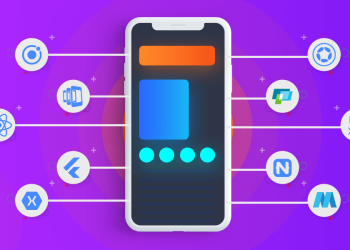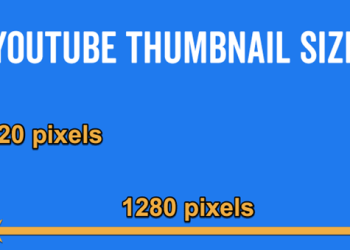The app ecosystem is growing rapidly, with opportunities for developers to create innovative and successful apps. However there are a number of factors to consider when building an app.
Factors to consider while building an app
1. Purpose of the app: What is the purpose of the app? Is it for entertainment, work, or personal use? This will determine what kind of app to build and what features to include. The purpose of an app is to provide a solution to a problem or need. In order to create an app with a specific purpose in mind, you first need to identify the problem that you’re trying to solve.
This could be anything from helping people stay organized to making it easier for them to purchase items online. Once you’ve identified the problem that you’re trying to solve, you need to come up with a solution. This solution can take the form of an app, a website, or even a physical product.
Once you’ve decided on the solution, you need to come up with a way to market it to potential customers. Creating an app with a specific purpose in mind can be a challenge, but it’s definitely worth it if you can identify a problem that you’re passionate about solving.
The purpose of an app can vary depending on the person or business creating it. However, there are some general purposes that are common among app developers. These purposes may include entertaining or informing users, solving a specific problem, or making a process more efficient. Whatever the purpose may be, it is important to keep it in mind while developing the app to ensure that it is effective and useful.
2. Who is the target audience?:
Identify your target audience and design the app accordingly. If you’re targeting a specific age group or demographic, make sure the app is user-friendly and meets their needs. When creating an app, it’s important to keep your target audience in mind. Who are you designing the app for? What do they want and need?
In order to create a successful app, you need to understand your audience and what will appeal to them.Talk to people who fit your target demographic and ask them what they’re looking for in an app.
Once you understand your target audience, you can start designing your app with their needs in mind. If you’re targeting young adults, for example, you might focus on creating an app that’s visually appealing and easy to use. If you’re targeting business owners, you might focus on creating an app with powerful features and a user-friendly interface.
Keep your target audience in mind when designing your app, and you’ll be more likely to create a successful app that meets their needs.
3. Platform:
Which platform will the app be built for? iOS, Android, Windows, or another platform? Each platform has its own set of restrictions and requirements. In the age of the app, there are many different considerations to make when building a new app. One of the most important decisions to make is what platform to build for. There are many different platforms to choose from, but the two most popular are Android and iOS.
Android and iOS are both popular options, but they have different strengths and weaknesses. Android is popular because it is open source and has a large market share. However, iOS is popular because the apps tend to be of a higher quality and the user experience is generally better.
Another thing to consider is the cost. Android apps can be built for free, while iOS apps usually require a paid developer license. This is because Apple has stricter guidelines for apps than Android.
When deciding which platform to build for, it is important to consider the target audience, the budget, and the scope of the app. If the app is aimed at a global audience, Android would be the better option. If the app is aimed at a specific country or region, iOS would be the better option.
If the budget is tight, Android would be the better option. If the app is complex and requires a lot of development time, iOS would be the better option.
4. Development cost:
How much will it cost to develop the app? This will depend on the features and platform you choose. The cost of app development is frequently a hot topic, and often one of the first questions asked by business owners and entrepreneurs looking to build an app. The cost of app development can vary widely, depending on the features and complexity of the app, the platform or platforms it’s built for, the developer or development team you work with, and other factors. So, what should you expect to pay for an app?
In general, the cost of developing a mobile app ranges from $5,000 to $200,000 or more. Small business owners and entrepreneurs often start in the lower end of that range, while larger businesses and enterprises may spend more.
To get a better idea of how the cost of app development can vary, let’s break it down into some of the key factors that contribute to the overall cost.
App features
The cost of an app is often based on its features. More complex features or those that require specific coding or design will cost more to develop. For example, an app that includes a complex mapping feature or requires integration with back-end systems will be more expensive to build than an app with basic features.
App platforms
Apps must be designed and developed for specific platforms, such as Android, iOS, or Windows. The cost of developing an app for a specific platform will vary depending on the complexity of the platform and the proficiency of the developer or development team.
App design
App design is another factor that contributes to the cost of app development. Good app design is essential to the user experience and can impact how successful an app is. A well-designed app typically costs more to develop than one that is not well designed.
App development team
The cost of app development is often based on the qualifications and experience of the development team. Hiring a team of experienced developers will typically cost more than hiring a team of developers with less experience.
App testing
App testing is essential to ensuring a high-quality app. Testing can be time consuming and often requires additional resources, such as test devices and a separate testing environment. All of these factors contribute to the cost of app development.
5. Timeframe:
What is the time it will take to create the app? It could take weeks to develop depending on how complex the app is.
6. Marketing:
How will you market the app? This will require a separate budget and strategy. You’ll need to create a website, social media accounts, and launch campaigns.
7. App store optimization:
App store optimization (ASO), is a method to improve the visibility and rank of an app on an app store. This involves optimizing the app title, keywords, description, and research.
8. Monetization:
How will you make money from the app? Will it be a paid app, ad-supported, or free with in-app purchases?
9. Maintenance and updates:
Once the app is released, it will require regular maintenance and updates. This includes bug fixes, new features, and platform updates.
10. Legal:
There are a number of legal considerations to keep in mind when building an app. You’ll need to trademark the name, protect your copyright, and comply with applicable laws.
Conclusion
There are a number of factors to consider when building an app. By thinking through these factors, you can create an app that is successful and meets the needs of your target audience.

















